Elizabeth Heath is one of the top American journalists living and working in Italy, so it’s no wonder I knew her work long before I met her in person. We finally met a couple of years ago at the opening of the W Rome. At the time, Liz was the executive editor of Italy Magazine and lured me into contributing. She launched their ‘Inspired Stays’ series, which profiles the country’s best hotels (and which I now head up as a contributing editor). Though she no longer works at Italy Magazine, she still writes for many top-tier publications, including Travel + Leisure, TripSavvy, and Reader’s Digest, and updates Frommer’s Rome guidebook.
Liz has been living in Allerona, an Umbrian village designated one of the Borghi più belli d’Italia (most beautiful villages in Italy) for 15 years. Last year, she and her husband Paolo launched Villaggio Tours, which organizes small group trips that aim to immerse travelers in village life. So when I got an assignment for AFAR to write about how to get off the tourist trail in Italy, I knew I had to talk to her. This interview was done in connection with that assignment, but Liz graciously gave me permission to publish it in full. I’m thrilled to share it as part of my series of interviews with creatives and entrepreneurs in Italy.
Can you remind me how long you’ve been living in Allerona? And how did you end up there?
I've been living here since 2009. So that makes 15 years this month. And I wound up here because the year before I met my future husband, who was born in Allerona and has always lived here. I spent the summer in Orvieto because I was essentially trying to decide if I wanted to move to Italy or not. Because I spent a lot of time over here and was looking to change my life and trying to figure out how and it turns out marrying an Italian makes it pretty easy to change your life.
What are some of the differences between living in a small village versus living in a bigger city?
When I first got to Allerona, I used to joke that everybody in town knew if you have a yeast infection because it is such a small town and when you go to the doctor, you sit in the doctor's waiting room and just wait until it's your turn. You don't have an appointment at the town doctor. So people start talking about whatever their ailments are and if I didn't share this information with somebody, my mother-in-law certainly would. And it's not in a gossipy way. It's just out of concern. So in a sense, it's like a total lack of privacy and lack of anonymity, which in a city or even in a medium sized city, you have a little bit more.
Of course, we have fewer conveniences compared to being in a city. Like when I have to go do my big grocery shopping for instance, I go to Orvieto because there's a big grocery store. If I want ingredients to make Mexican food or something, I have to go there because our little stores in town don't have that kind of variety. And at first I found these things to be very limiting. And then I've gotten used to it, and I very much learned to work with and adapt to what's at hand and that's been a real evolution for me.
So in Allerona, you have—I would imagine since I haven't been there yet—but I would imagine that you have the centro storico, right, which is like a very small area, and then there's usually a more modern town on the edge, right?
In our case, Allerona paese—centro storico—where we live is up on a hill and we have one little store there, two bars, a post office open a few days a week, and a pharmacy that's open a few days a week. The lower town, Allerona scalo is seven kilometers down the hill. And there we have the main pharmacy, two grocery stores, a couple of bars, edicola—like a stationery store— and two farm stores. Almost everything I need to do I can do there.
For travelers planning a trip to Italy, what do you think are the advantages of staying in a small village like Allerona?
The word authenticity gets tossed around so much in traveling lingo that I think it's lost its meaning, but I feel like here we actually really have that. And if people want to get a clearer look at how everyday Italians in these small towns live, how they go about their lives, how they're connected to the land, and how they harvest... How you know, when it rains, a couple of days later, going foraging for mushrooms is a really big deal. That's the kind of experience they can have here that even I think a medium sized town like Orvieto can't necessarily offer just because it's 10,000 people instead of 200.
A really local small town experience and that's not for every kind of traveler either. But maybe they've already done Rome, Florence, Venice, they've been to Tuscany, they've been to the Cinque Terre or something and they want a more immersive experience, I think a small village like ours or others in Italy can offer that.
Do you think that for travelers who don't speak Italian that's a barrier to entry to these kinds of small towns?
I don't think it's a barrier to entry. I mean, you can go into a local restaurant or a store and if you're friendly people are genuinely going to be friendly back to you. I think that's hopefully true in most places in the world. But in terms of connecting, of having things explained to you, of understanding better, like here's why we do this, or, here's why this is a superstition, you need to have somebody there who can who can interpret for you. If you don't have some Italian skills, bring somebody or try and brush up on some basic Italian skills.
You have to have a pretty ready smile. You have to be ready to greet people. And buongiorno goes a long way. Just being friendly makes a difference. Your body language helps people to see you as approachable and if you have a question, point to something and make a face that you're curious and whether you understand the explanation or not, somebody will probably be really happy to show you their cantina or whatever the case may be.
It's funny, I was just in Forte dei Marmi and talking to a man who has a little bottega where he makes these zoccoli, like wooden sandals, literally made to measure. And when I told him that I'm American, he said that he loves his American customers and that they come all the time and they're so great. And I asked him “Do you speak English?” And he said no, but they manage to communicate with each other and I think it's the enthusiasm that is infectious, right?
We have one of the family members who helps us with our tours. He really likes Americans and he doesn't speak any English other than to say “one glass white wine” and people love him. They love him and he because he just has this—probably like your shoe maker in Forte dei Marmi—he just has a sort of anima about him that draws people to him.
He’s this little guy, not like George Clooney or something like that. People gravitate to him whether they understand what he's saying or not and he can explain enough to bring them down into his cantina to have them try his homemade grappa, and yes, I'm there to translate some things, but I think that even if I weren't, people would manage to have a good time with Pepe anyway.
What do you think are some common misconceptions about Italian villages either from people who have gone to visit you or people that you talk to back home?
I think that there's this idea of what I call “Italy cute.” And I mean that as a derogatory term. People have this idea that Italians are just sort of performing for them. Or that this is their everyday lives, like of course they're singing in the piazza or they're sitting around playing cards.
People work and they load their dishwashers and they pay their bills and they do everything that people do in their everyday lives. Obviously watching somebody load their dishwashers isn’t particularly interesting, but I think that that's a misconception, too, that everybody's there to sort of bark like a trained seal for you.
And it's not picture perfect all the time. Because one person has a really nice, tidy garden and another person has a garden that’s a mess and those two people could live right next to each other. It's just everyday life, it's not a gussied up version of Italy cute. I guess in some places it is, but in villages like ours, it's not.
It's not always checkered tablecloths and accordion players...
I have seen an accordion player a couple of times here, it does happen from time to time and people have been known to spontaneously break out in song, but they're usually not doing it for a group of tourists. If you stumble upon a sagra or something, you might find accordion players and people breaking out in song and everything else. But I just don't think you can go there expecting stereotypes like what we've always been conditioned to associate with Italy.
Let's talk about Villaggio Tours now. We've got a little bit of background about village life, so tell me about Villagio tours and why you decided to launch it and what you're hoping to convey to people that join you for one of your tours.
We launched Villaggio Tours last year. Paolo and I have long kicked around the idea of doing something here in Allerona, but we didn't know exactly what. Do we convert our house to a vacation villa? Can we buy something else in town and start renting it out? And what we wound up doing—without this in mind—we bought a large house in the village a year and a half ago or so because my husband has a construction company and he's a traditional stonemason. So he knows all about renovating these old houses. So we bought this house with the idea that we could renovate it and maybe turn it into two apartments and sell them or something.
Then I was on a small group tour in Calabria and that's when the idea came to us. That's what we should do with that house and this is what we should start doing for Allerona because we've wanted to do something that helps Allerona, that is maybe a little bit of an economic shot in the arm for the town. I don't know that we're ever going to be a driver of employment, but maybe we'll hire an employee or two in the future and maybe we give a reason for the store to expand their offerings or for another store to open up or something.
So we do hope that this is going to breathe some new life into this community and help people appreciate the small villages that really are as diametrically opposed as you can get to someplace like Venice or Rome or Florence, which are great places to visit, but you know how overwhelming they can be. A friend of mine characterizes it as “the Italy that leaves you wanting versus Italy that leaves you wanting more” and I really like that analogy.
Personally, I’m a travel writer like you, but I've also been looking for an alternative career path, as more and more publications stop publishing. I think one of the deciding factors for me was when a fairly high profile magazine announced that they were switching to all AI for their articles. And I just felt like okay, there's a fork in the road here potentially. So while I continue to write about travel and travel around, particularly in Italy—and quite enthusiastically—I'm doing it now with two sets of lenses: through that of a travel writer, and through that of a tour operator to bring people here someday or look at what they're doing here and how can we replicate that.
And then in response to the overtourism crisis in Italy as well. I went to Rome last summer and people were just miserable. It was so hot, it was so crowded. They're waiting in line to get in here. They were waiting in line to get in there and just sort of walking around like zombies because they were in Rome in the middle of July. And for many people, this is a vacation of a lifetime. You know, not everybody can afford to take a European vacation every year, even every few years. And what happens when you come here, and it's so difficult and uncomfortable and in some senses disappointing? So we are offering an alternative to that.
What kind of activities do you do?
We do a foraging walk, where we have a naturalist guide who points out all of the edible plants and herbs in the woods. And that's followed up with a lot of traditional dishes that are prepared with those ingredients. We do a ceramics class in Orvieto. We make a piece of ceramic tile with a traditional Etruscan design. We do a marbleized paper class. We do mushroom hunting. We've gone to Civita di Bagnoregio and we spend time in Orvieto as well. And we eat a lot and drink lots of wine and we have a cooking class with my mother-in-law and sister-in-law.
So more of a hands-on kind of experience versus going to museums and seeing paintings or visiting churches and stuff like that.
And we wander into churches. But what I try to do in a week-long program would be one day when we're just centered around Allerona, one day when we're on an outing, maybe out all day or at least our past lunch to visit a touristic site within a 30 or 40 minute radius of Allerona. Then we're back in Allerona for a day, so it's kind of a graph of faraway, close, far away, close, just to break up the week a little bit.
What kind of feedback have you received from the people that have joined your tours so far?
It's been overwhelmingly positive, which is very gratifying. It was interesting because several people who have visited had not been to Italy before and I was a little nervous. I was like wow, they're going to come to Italy and the first place they go is Allerona and I actually did encourage them to spend some time in Rome. It didn't seem right for them to come here and just see our little town and not have any other taste of elsewhere in Italy.
But people really appreciated the family aspect of it more than anything else. They felt welcomed into our family and our community. The community is very excited for the most part. People are enthusiastic and they're so invested in whether our guests have a good time. Do they like it? What do they think? Did you show them the church? It's been a sweet experience altogether. I think our guests walk away feeling like they've been embraced by the warm hug of our town.
That's so nice. I'm gonna get there one day.
I should point out two things I was talking about: the house that we bought, we’re still renovating that. That's not ready yet. Hopefully in late 2025 we'll be able to house guests there. But the idea is that's going to be the base. And in the meantime, we're using different guest houses and apartments in town. And then I'm going to be introducing shorter tours because I have gotten some feedback from people that it might be a good idea to do a three or four day tour instead of having people commit to the whole week.
So what are some of your other favorite under the radar places in Italy? Or just ways generally to kind of get off of the tourist trail and see something else other than Rome and Venice?
I love Rome and Venice too. Visiting those places in the off season. I was in Venice in January and it was wonderful. You know how great Rome is in January or February two. So I don't want to knock those places at all. I just don't think high season is the time to visit them anymore. Walking in a different direction than the way that the crowds are headed can make a big difference too.
But as far as some of my other favorite places that may be a little bit lesser known to American travelers, the Dolomites—I don't think they're a secret at all—but the small towns in the Dolomites. We took the train to Bolzano and then took the bus to this lovely little town of Ortisei. Had a great stay there in late June. Actually, we're going back next month and that's a great time to visit because skiers have long gone home, but the big summer crowds haven't arrived yet and the weather is perfect.
We love Giglio and the islands in the Tuscan archipelago. Sardinia. I think I'm gonna offer a tour that includes Giglio next summer.
So you're gonna add some beach destinations?
I had aspirations to offer a Dolomites tour and then one that included Giglio and Elba and logistically, it's just not that easy to get from Giglio to Elba without a long, boring drive. I'm always thinking about people being in a van and I'm like, How long do they want to sit in a van? Especially if people are in the backseat of the van. So for now, we start off in Porto Santo Stefano and the Argentario, then a couple of nights in Giglio, and then we head to Allerona and do the abbreviated tour here. And I would like to add on Dolomites in the future.
I'm going to Trieste in a couple of weeks and might look up there too. I like the idea of offering tours to places that aren’t right at top of mind for people when they think of Italy. Who thinks of going to Trieste, right? Or Giglio? Lots of Italians do, but I don't think that many foreign travelers do.
Thank you so much, Liz. It’s been so fun chatting with you.
I do think it's important to keep in mind that these small towns aren't for everybody. If you need a lot of different services, like if you want to have a range of restaurants to choose from, or a souvenir store or other kinds of services, a lot of these places aren't going to provide that because they're not geared towards tourism. As tourism spreads—and hopefully we'll grow here in our town in a reasonable and sustainable way—maybe there will be more offerings of that type. But you can't walk in expecting there to be this well developed tourism infrastructure, because that's not what these towns make their living off of.
So people should be aware of that because it might not be what you're expecting and it does require people to really slow down and just be in the place and not be looking for what's there to do here? What is there to see? I can offer you a list of some things we can do. You could rent a bike, you can go for a walk, but it's not going to be like, you must see this church or this museum and have this experience. So I just think people have to gauge their expectations.
Further Reading
For more ideas about how to experience Italy without the crowds, check out my article for AFAR that prompted this interview.
For more about Villaggio Tours, check out the website. You can also follow Villaggio Tours on Instagram at @villaggiotours and follow Liz at @myvillageinumbria.
Liz actually included some of my tips in this article for Travel + Leisure about how to plan an unforgettable trip to Rome, according to local experts.
I’ve included Liz’s tips in past issues of the New Roman Times about Orvieto and Civita di Bagnoregio, two of the places where she brings guests with Villaggio Tours.
You can see all of the interviews in this series here.


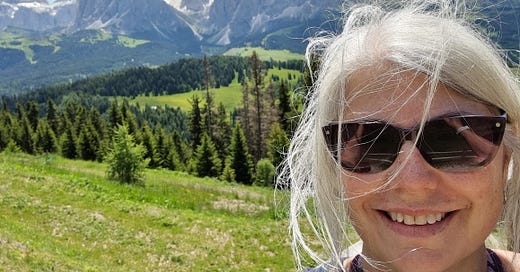




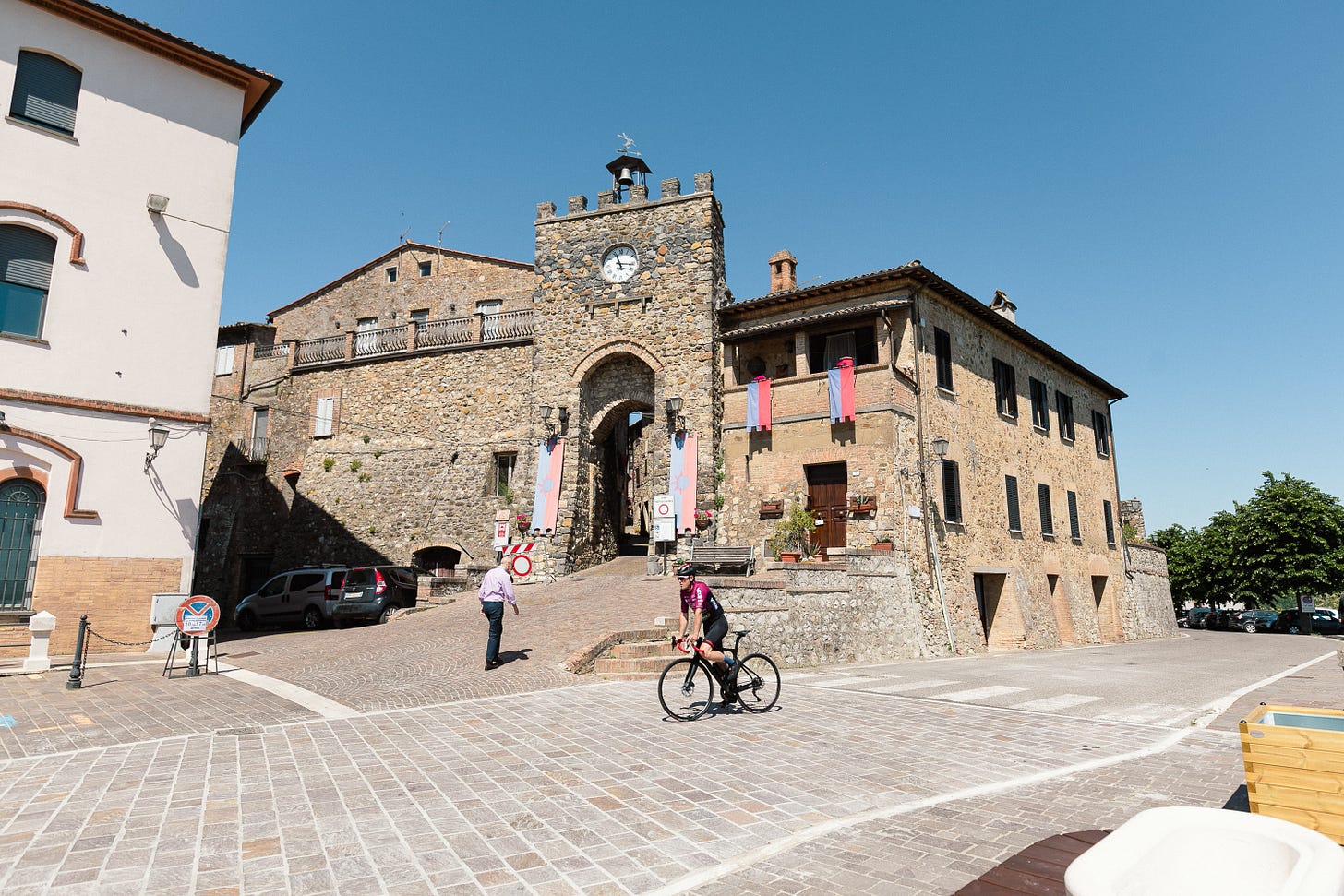
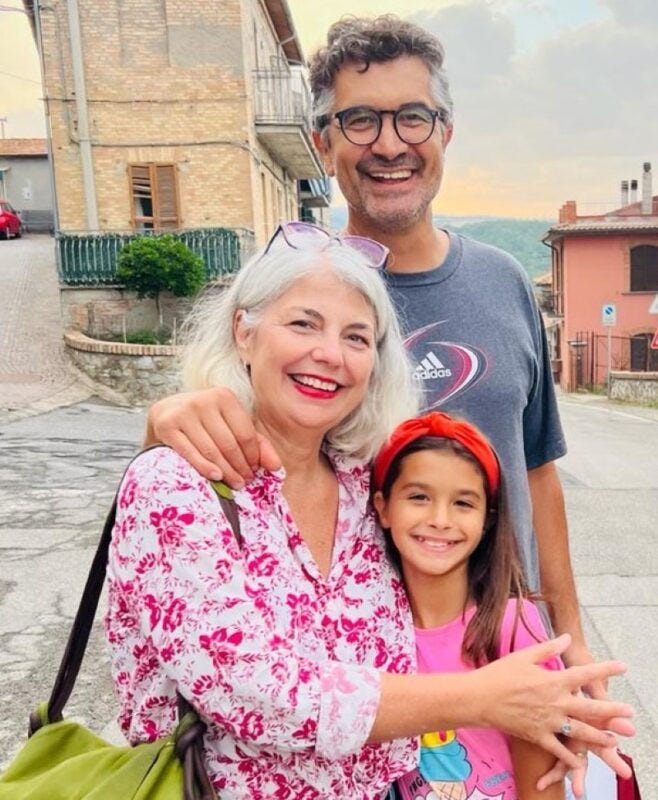
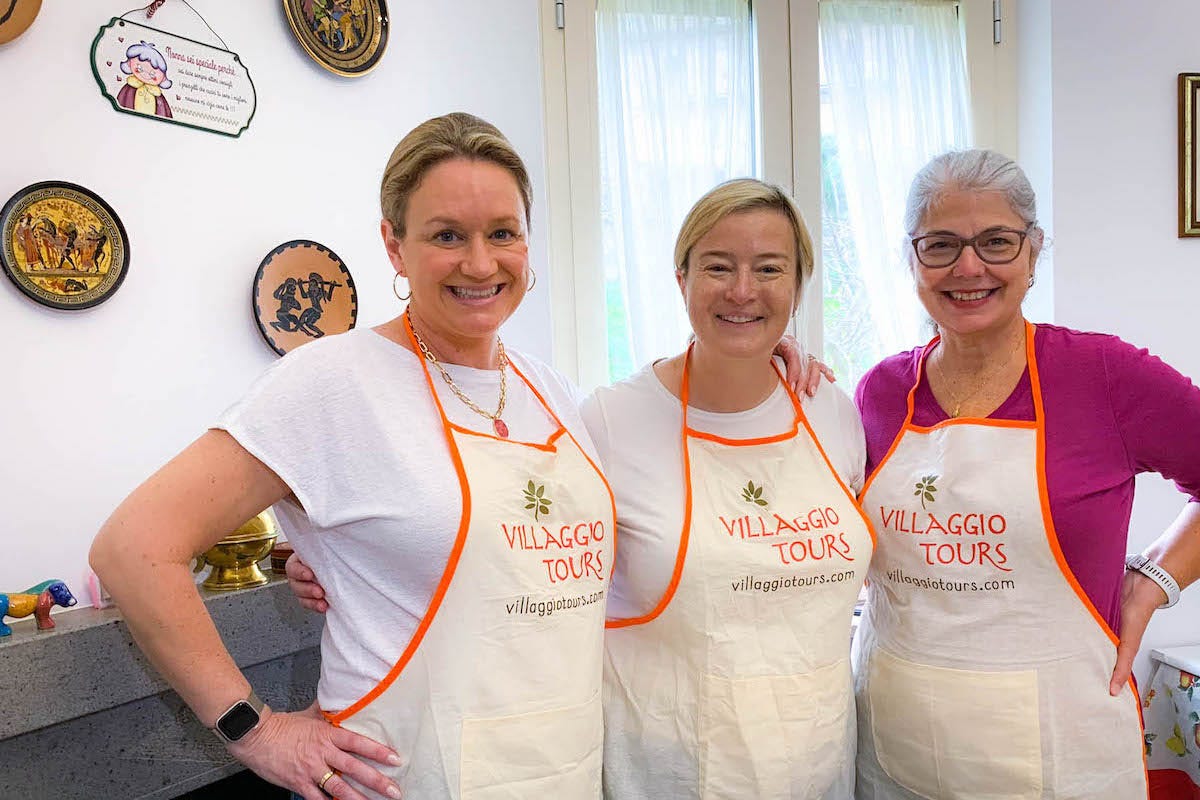
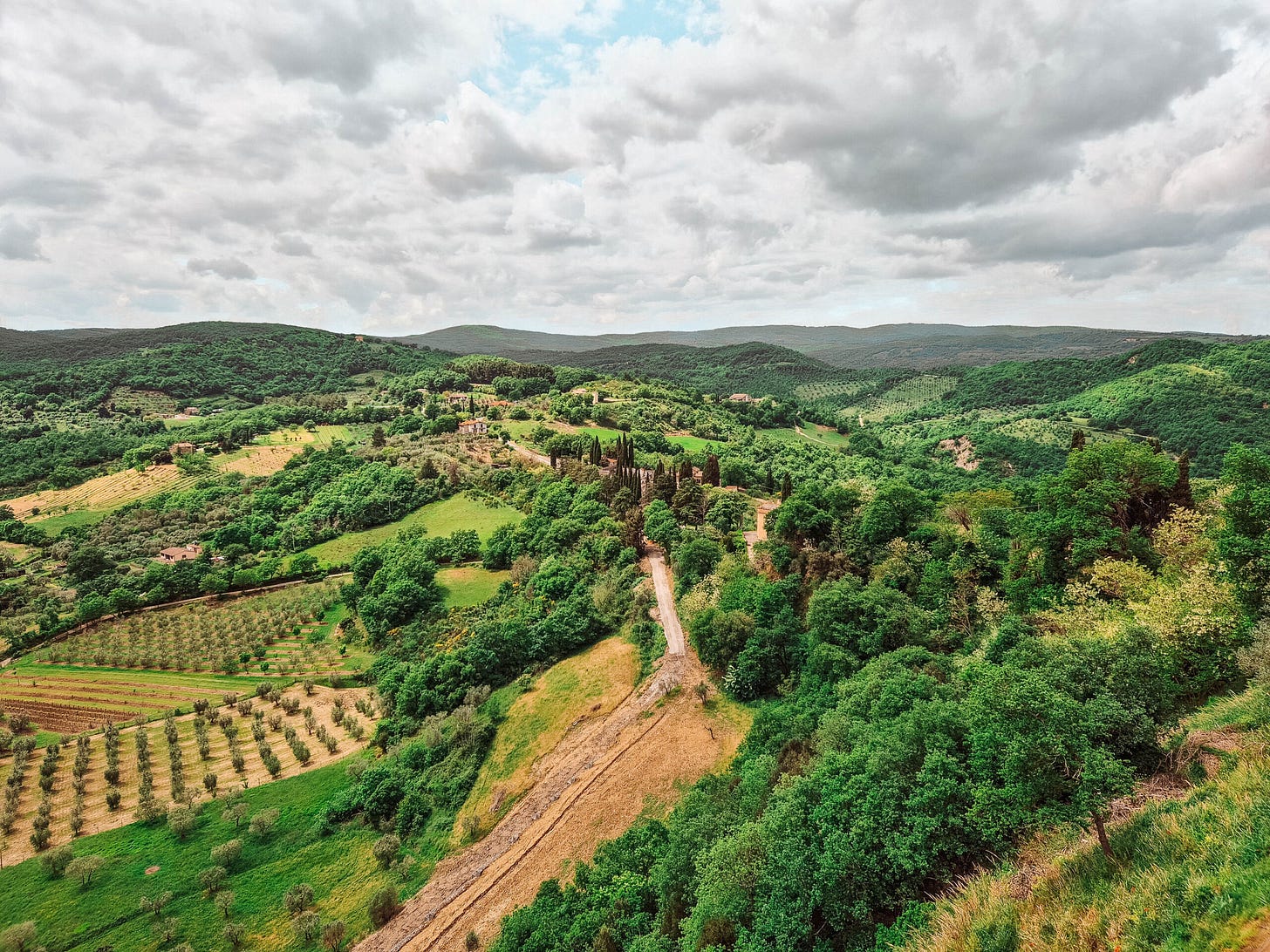
I love how you two address the concern about visiting a small village off the tourist path and not speaking the language -- you captured the whole essence of what we (all) love about Italian hospitality -- a warm and welcoming *anima* / vibe / soul transcends the language barrier.
Intriguing. Having last month had a preliminary taste of Italy (Milan, Parma, Vicenza, Bologna, Venice), I'd love to go back and experience a place like Allerona. I'd probably combine it with Rome.